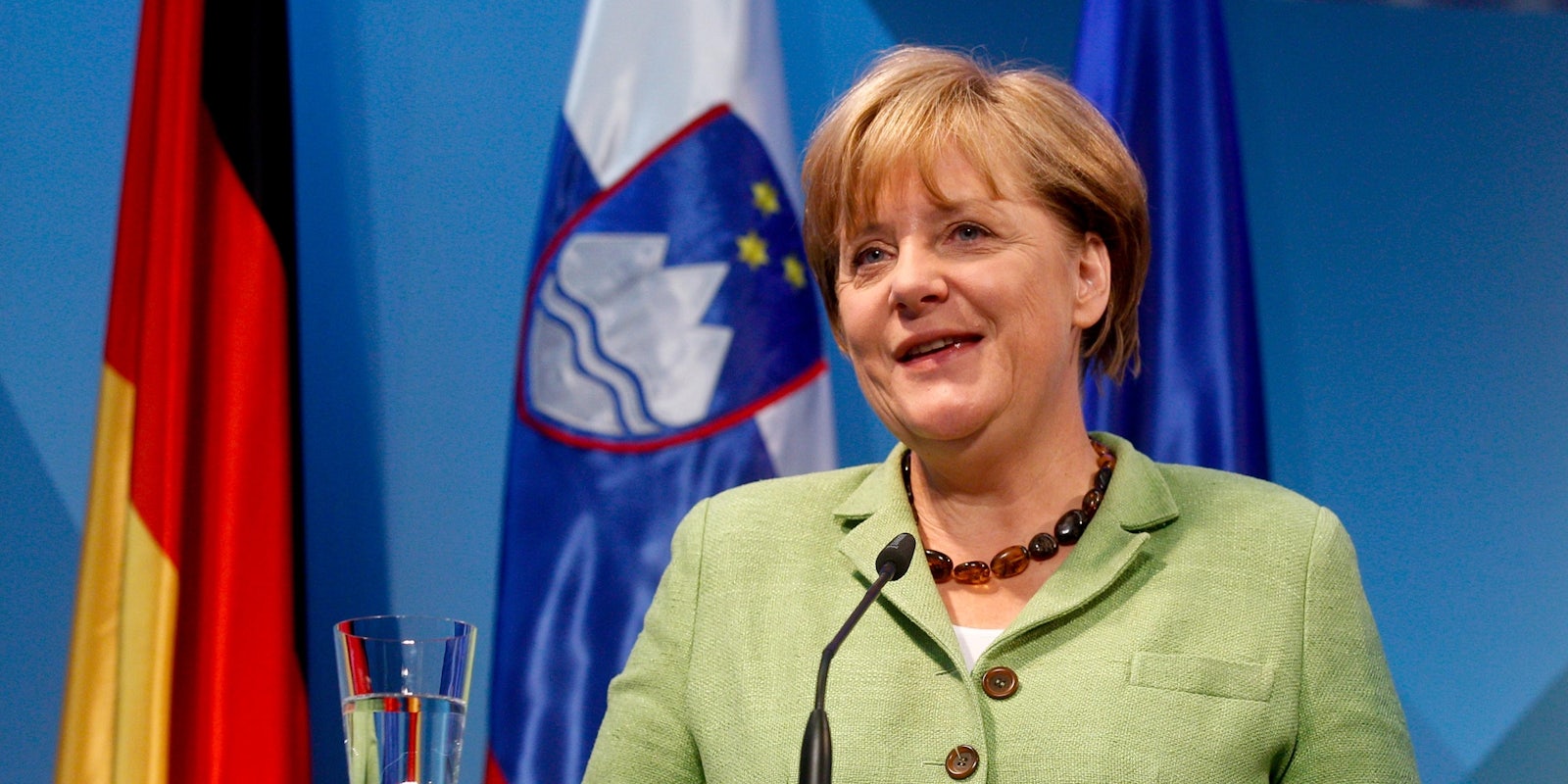The latest revelation from former National Security Agency contractor Edward Snowden is a list of 122 heads of state the NSA keeps tabs on.
The news is part of a bigger story published Saturday in the German newspaper Der Spiegel, co-written by Laura Poitras, one of the three journalists who got to meet with Snowden before his identity was made public. Poitras’s story uses other Snowden documents to dive deep into the NSA’s extensive spying on Germany and number of prominent Germans, including a very suprised CEO of a German telecommunications firm.
But one simple aspect stands out—a single slide from a list of 122 heads of state, showing the NSA gives them special attention. That slide is marked “REL TO USA, AUS, CAN, GRB, NZL,” meaning it’s information shared between the “Five Eyes” countries’ agencies—NSA, Britain’s GCHQ, Canada’s CSEC, and the equivalent agencies in Australia and New Zealand.
Only 11 names are visible on the single slide, which lists the first 10 in alphabetical order by first name, then skips to the last one. The slide is somewhat outdated—some of the people listed haven’t been in office since 2008. They are:
Abdullah Badawi / Malaysian Prime Minister
Abdullah Yusuf / Somali President
Abu Mazin / [Palestinian] President
Alan Garcia Peruvian President
Aleksandr Lukashenko / Belarusian President
Alvaro Colom / Guatemalan President
Alvaro Uribe / Colombian President
Amadou Toumani Toure / Malian President
Angela Merkel / German Chancellor
Bashar al-Asad / Syrian President
Yuliya Tymoshenko / Ukrainian Prime Minister
After earlier revelations of the NSA spying on Merkel hit the press, the White House issued statements saying that it no longer targeted her, and would not in the future, but refused to comment on whether it had in the past—a pretty good indication that practice stopped when the Snowden documents were made public.
Photo via Wikimedia Commons
